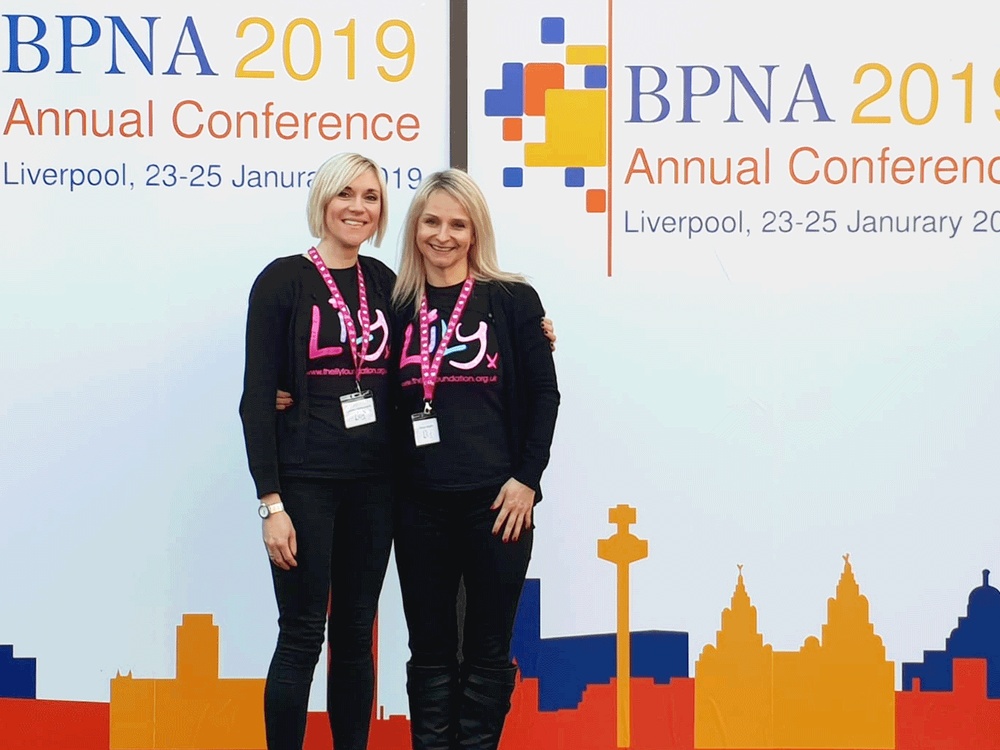Alison Maguire, Head of Research & Finance, and Lyndsey Butterworth, Science Communication, were there with around 350 delegates to raise awareness about the charity's services among doctors specialising in the care of children with neurological disorders.
The three-day event provided the perfect opportunity for the Lily research team to meet with medical professionals from around the UK and tell them about the charity's work, and how they support patients and families affected by mitochondrial disease. This included setting up a Lily information stand at the conference venue, and distributing brochures and patient support packs for doctors to share with patients in their clinics.
The Lily team met with Professor Helen Cross, Honorary Consultant in Paediatric Neurology at UCL and a long-time supporter of The Lily Foundation, to discuss the new adult support services offered by the charity. This service is seen as especially important for young people with mito who may be transitioning from children’s to adult services within the NHS.
The conference also provided a valuable opportunity to network with other charities in the field, including Matthew’s Friends and The Children’s Trust, who work to improve the lives of children affected by neurological disorders. By working together with patient organisations and medical professionals, The Lily Foundation can continue to offer the best support to families and individuals affected by mitochondrial disorders.

